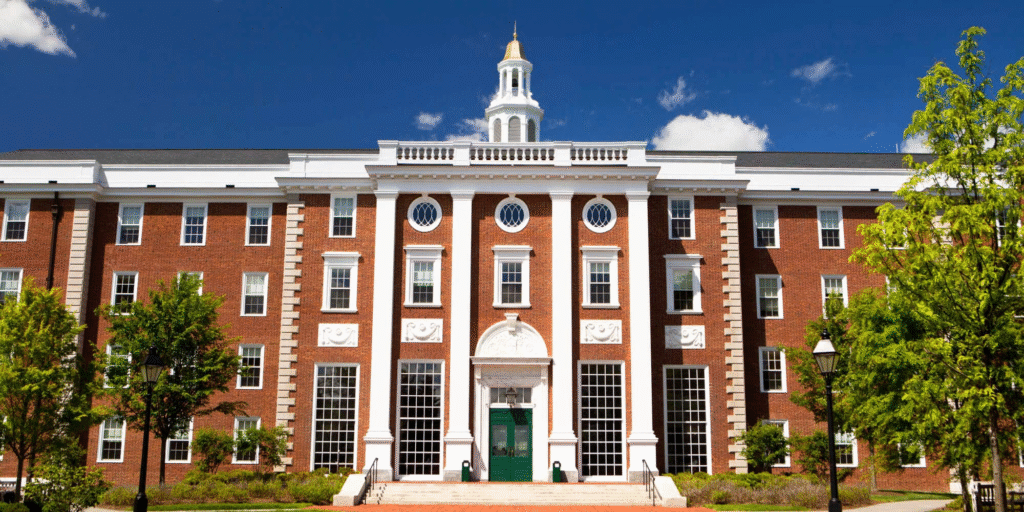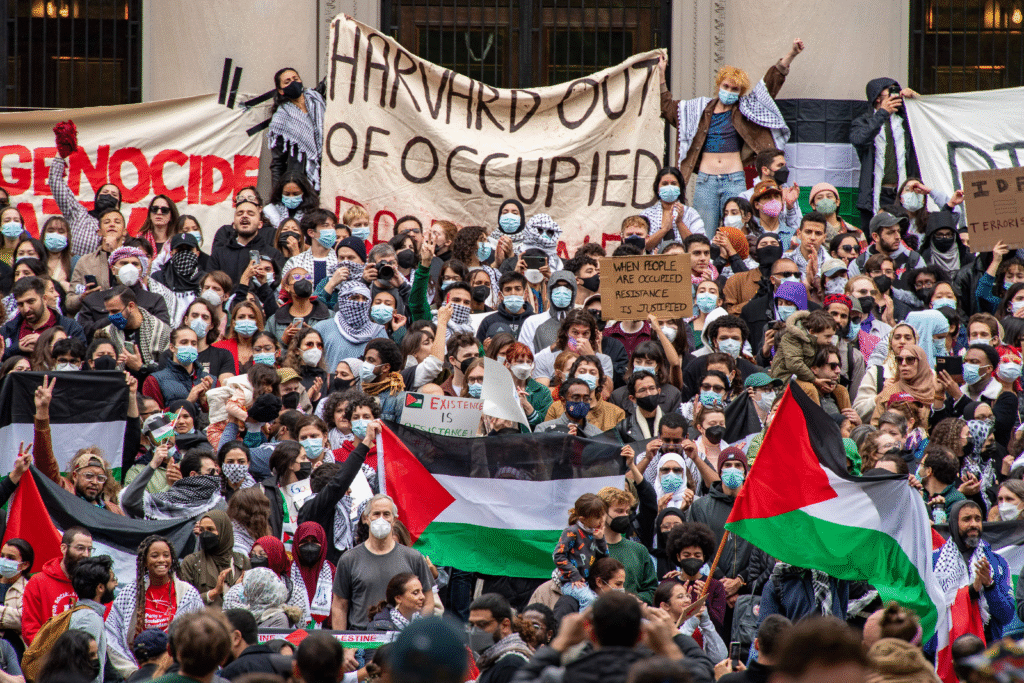Did Trump Halt Harvard’s Foreign Enrollment?
The Trump administration has revoked Harvard University’s ability to enroll international students, escalating a heated conflict with the Ivy League institution.
The decision, announced on May 22, 2025, by the Department of Homeland Security (DHS), strips Harvard of its Student and Exchange Visitor Program (SEVP) certification.

This move prevents the university from admitting new foreign students. It also forces current international students to transfer or risk losing their legal status in the U.S.
The action has sparked criticism, legal challenges, and uncertainty for nearly 7,000 international students at Harvard.
Reasons Behind the Decision
DHS Secretary Kristi Noem cited Harvard’s alleged failure to comply with federal rules as the reason for the revocation.
The administration accused the university of promoting an “unsafe campus environment.” It claimed the school supports antisemitism, pro-Hamas sentiments, and “racist” DEI initiatives.

Noem said Harvard failed to provide requested disciplinary records of foreign students involved in protests, especially those tied to the Israel-Hamas conflict.
Officials also accused Harvard of allowing “anti-American, pro-terrorist” activities on campus. These include alleged harassment of Jewish students.
Tensions had built for months, as the Trump administration pressured Harvard to align its admissions, hiring, and curriculum with federal priorities.
Impact on Students and Harvard
The decision affects about 6,800 international students. That group makes up 27% of Harvard’s total enrollment, based on 2024-2025 university data.
Current students must now transfer to other schools to keep their visa status. This requirement has caused major disruption.
Marie Chantel Montas, a Ph.D. candidate from the Dominican Republic, expressed shock and uncertainty about her future.
Other students, like Karl Molden from Austria and Leo Gerdén from Sweden, fear their academic dreams and legal status in the U.S. are now in danger.
Harvard depends on international students for tuition revenue. The university faces both financial and academic setbacks.
In response, Harvard called the move “unlawful” and “retaliatory.” It vowed to fight for its students and protect its academic mission.
Legal and Political Reactions
Critics have condemned the action as an abuse of federal power. U.S. Representative Pramila Jayapal called it a “dangerous and unlawful” attack on academic freedom.
Legal experts, including former federal prosecutor Nick Akerman, believe courts will block the move. They cite its unprecedented nature.
On the same day as the DHS announcement, a federal judge in California issued a preliminary injunction. It prevents the Trump administration from stripping international students of legal status nationwide.
This ruling signals a serious legal challenge to the Harvard-specific action. Harvard is expected to file another lawsuit, adding to its earlier challenge against the administration’s push to change university policies.
Broader Implications for Universities
The Trump administration has suggested Harvard may not be the only target. In a Fox News interview, Secretary Noem said other schools like Columbia could face similar consequences.
This move fits into President international students broader immigration crackdown. That includes revoking visas for students involved in pro-Palestinian protests.
These actions have raised alarms about the future of international education in the U.S. International students help drive academic innovation and economic growth.
Critics warn that targeting elite universities could push global talent away. This shift may weaken the U.S. as a center of academic excellence.
Uncertainty and Next Steps
The future remains unclear for Harvard’s international students and academic programs. The university is working to guide affected students.
Still, many fear deportation or disrupted studies. Legal battles will likely grow more intense.
Experts say courts may issue restraining orders to delay DHS enforcement.
Meanwhile, students like Abdullah Shahid Sial, a Pakistani undergraduate, are organizing to resist the policy.
This clash between the Trump administration and Harvard highlights deeper debates. These include academic freedom, immigration policy, and the role of universities in U.S. politics.


 Trump Demands US Attorney General Share Epstein Data
Trump Demands US Attorney General Share Epstein Data  Trump Claims ‘Inflation Is Dead’ but June Surge Signals Otherwise
Trump Claims ‘Inflation Is Dead’ but June Surge Signals Otherwise  Has Trump Sided with Ukraine Over Russia in the War?
Has Trump Sided with Ukraine Over Russia in the War?  Trump Threatens Brazil with 50% Tariff Over Bolsonaro Trial
Trump Threatens Brazil with 50% Tariff Over Bolsonaro Trial  Trump Slaps Tariffs on Asian Nations, but India Secures Exemption
Trump Slaps Tariffs on Asian Nations, but India Secures Exemption